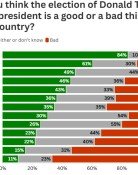Regulatory reform is still stuck without even taking first step
Regulatory reform is still stuck without even taking first step
Posted November. 16, 2023 08:18,
Updated November. 16, 2023 08:18
Only six out of 146 reform bills to support the South Korean government’s regulatory reform have been passed by the National Assembly. The standing committee hasn’t even passed eighty percent of the 140 ‘killer regulatory reform’ bills. The revised bill of the Distribution Industry Development Act, which the Yoon Suk Yeol administration put forward as the first regulatory reform initiative, has been pending at the standing committee for over 1,200 days since it was first proposed. While the bills are specially managed by the Office of the Prime Minister, their processing is slow.
Most of the bills that have been pending for over a year are the ones that support the development of new future industries, which means a delay in their processing causes massive national losses. The unmanned delivery business using robots or drones is unable to attract enough investment as there is no legislative foundation for commercialization. The application of biotechnologies, such as gene correction, and businesses related to clinical trials and autonomous vehicles have not made any practical progress due to regulations. The deliberation of the metaverse industry promotion bill has been suspended for nine months after insignificant discussions on its naming.
Companies that are tied down by regulations are struggling. They are anxious that they can’t even test out new technologies. Businesses are already struggling due to an extended economic recession. Global competition in advanced technologies is getting fiercer due to quick progress in China and other countries and large-scale national-level investment. The South Korean National Assembly, however, has not even addressed the regulatory problems, rather than supporting, the challenged industries.
There could be some disagreement between the ruling and opposition parties regarding the details of bills. However, it is the National Assembly that is supposed to coordinate, adjust, and produce outcomes. In addition, a large number of killer regulatory reform bills in the IT industry can be quickly passed as there isn’t much disagreement. However, the parties neglect them by being hung up with political strife surrounding a few contentious bills and earning more votes, failing to play even basic roles.
The government is holding a series of strategic meetings to ease any possible regulations. However, revising subordinate enforcement decrees leads to only limited implementation. The majority-opposition party that has been uncooperative and abandoned legislative duties and the ruling party that has failed to convince and find a middle ground with the opposition party are both responsible. As the bills stay longer at the National Assembly, more losses will be accumulated due to weakened growth drivers and lowered competitiveness. The National Assembly will hurry up and pass regulatory reform bills unless they are willing to sink the South Korean economy, which is struggling with a low growth rate.
lightee@donga.com







